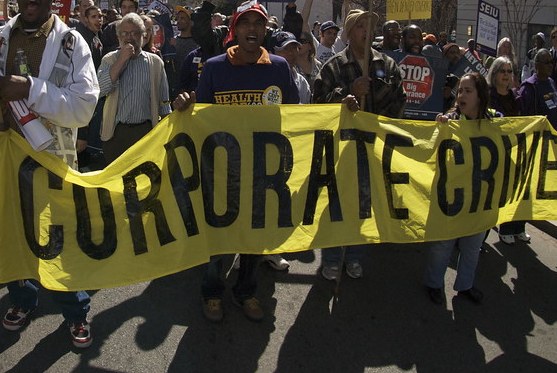
Compliance Requirements for Private Limited Companies
- Jan 11, 2020
- 35


INTRODUCTION
Corporate Criminal Liability has evolved over these areas, making sure corporations are held liable for their actions. Initially, only individuals were held liable for criminal liability because there was this belief that a corporation is an artificial entity and thus it lacks the mental element or mens rea to commit a crime. But as the corporate crimes started to increase and got even more complex, the legal systems of various countries including India’s felt the need to address this issue.
CORPORATE CRIMINAL LIABILITY IN INDIA
Corporate Criminal Liability refers to the legal accountability of a corporation for the illegal acts that are committed within its operations. This is when a corporation is held liable for the illegal acts that are committed by its agent or director or manager during the course of his employment. Initially, it was believed that the corporations are not capable of committing crimes that require intent or mens rea as a corporation does not have a mind and a physical form, but as the corporate and economic crimes started to increase, the courts recognized the need to address this, they started to make the corporations liable as well through two principles which are as follows;
Strict Liability:
This means that if a corporation does something illegal, it is assumed that it had the intent to, without the need to prove it. The corporation will be held responsible for it.
Absolute Liability:
Absolute Liability is way stricter than Strict Liability. It basically says that if a corporation does something that causes severe harm to the society, for ex-gas leak, it will be responsible no matter what. It doesn’t matter whether the act was by accident or intentional.
This approach aims to have a balance between the two. An environment where the society is protected, the people are protected and along with that the corporations are running in a smooth and efficient manner as well.
LEGAL PROVISIONS IN ORDER TO GOVERN CORPORATE CRIMINAL LIABILITY IN INDIA
There are various legal provisions in India in order to address crimes related to corporations. The provisions are as follows:
Indian Penal Code,1860:
Section 2 of the IPC applies to corporations as well. The section includes companies, associations and bodies of persons when defining “person”. Under this corporations can also be held liable for crimes such as public nuisance, fraud etc.
Companies Act,2013:
Under this the company is penalized if it commits any corporate fraud or any sort of financial crime.
Prevention of corruption Act,1988:
This focuses on tackling corruption in India.


CHALLENGES IN CORPORATE CRIMINAL LIABILITY:
MENS REA AND DOCTRINE OF ALTER EGO:
One of the major challenges in corporate criminal liability is mens rea.
The corporations are viewed as artificial entities with no physical form or mind. Thus this raises a question that whether a corporation can be made liable for crimes that require intent or mens rea.
ALTER EGO:
In order to address this issue, there is this doctrine called Alter Ego which basically says that just because a corporation is an artificial entity, that it does not have a mind and physical form of its own cannot get rid of this liability.
Thus it states that the people who are functioning on behalf of the corporation, that is, the agent or director, if they commit an illegal act with the intent to, will be treated as the corporation itself has done it. This approach aims at overcoming the issue of mens rea and holding the corporation liable for its actions.
CAN THE CORPORATIONS BE IMPRISONED APART FROM BEING FINED:
There are a lot of debates regarding this. Corporations cannot be imprisoned as they do not have a physical form. Whether the corporations can be prosecuted also for offences that mandates imprisonment is also a question.
There have been certain cases that clarify this to some extent. The cases are as follows:
Standard Chartered Bank Case:
In this case it was held that the corporations can be prosecuted even if the punishment includes imprisonment.
It was also held that in cases where imprisonment is impossible, courts can impose fines.
Aneeta Hada vs Godfather Travels and Tours:
In this case it was stated that the corporations cannot let go of their liability just because they cannot be imprisoned. It focused on imposing penalties, fines.
COMPLEXITY OF ORGANISATIONAL STRUCTURE:
Big corporations often have very complex hierarchies so its very difficult to pinpoint accountability among the manager, directors etc.
CORRUPTION:
Excessive power in the hands of office bearers can also lead to a lot of manipulation in regulatory processes like through bribes.
CONCLUSION:
The Corporate Criminal Liability in India has evolved over these years through various judicial precedents and legislations. This aims to hold the corporations liable for their actions and reduce economic crimes to some extent. This aims to have a balance between protecting the society and running the corporations in an efficient and smooth manner.
Unknown
Lorem Ipsum available, but the majority have suffered alteration in some form, by injected humour, or randomised words Mirum est notare quam littera gothica, quam nunc putamus parum claram, anteposuerit litterarum formas
replayAnonymous
Lorem Ipsum available, but the majority have suffered alteration in some form, by injected humour, or randomised words Mirum est notare quam littera gothica, quam nunc putamus parum claram, anteposuerit litterarum formas
replayAnonymous
Lorem Ipsum available, but the majority have suffered alteration in some form, by injected humour, or randomised words Mirum est notare quam littera gothica, quam nunc putamus parum claram, anteposuerit litterarum formas
replay